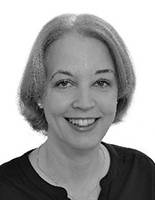
Are you a doctor or other health professional considering coming to work in Dubai?
Do you have questions about work and life in Dubai? In This Blog Guide to Life in Dubai for Doctors.
If you are thinking of relocating with your family, you may have many concerns about how they will adapt to life in a new country and culture.
Family Life in dubai
When we were relocating, my main concerns were for the children. It was not our first time living outside the UK, but Dubai was a relatively unknown place, and I was unsure how they would settle. I need not have worried! The kids love it here and now don’t want to move back to the UK. We have a good balance between work and family life.
Education in dubai
There are many excellent international schools, including a wide choice of British Curriculum schools. Our children love their school and felt part of the school community from their first week. They benefit from having friends from all over the world.
Work life in Dubai
For doctors and other health professionals, hours of work and on-call duties depend on your speciality and place of work. Sunday is a working day, but Friday is the main day off. You may be required to work some Saturdays, depending on your contract.
Salary and Cost of Living
One of the great benefits of working in the UAE is the tax-free salary. Depending on the package of salary and benefits you are offered, there is a greater potential, compared to the UK. Many employers offer allowances for accommodation and children’s education. Medical insurance cover is standard.
How much you can save will depend upon your living costs in dubai . Rents vary according to location and area. In the centre of Dubai rents are expensive. Moving further out from the city centre will reduce accommodation costs but may increase your commute time.
Things like petrol and eating out are cheaper than in the UK but buying imported products can be more expensive. Employing someone to help with housework or childcare is also more affordable than in the UK.
Community and leisure time
Dubai is extremely international. Approximately 85% of the population are expatriates from over 200 nationalities. People are generally friendly, used to mixing with others from different cultures and welcoming to new arrivals. There are many societies and clubs where you can make new friends.
There are a wide range of activities available, according to your budget. There is an endless array of restaurants with cuisines from all over the world. The more touristy attractions can be on the expensive side, but there are plenty of beaches, parks, and inexpensive or free museums and galleries. You can also take the opportunity to get out into the desert or visit a nature reserve.
Language, Culture and Religion
The UAE is an Arabic speaking country, but English is the main language used between people of different nationalities. All street signs are in both Arabic and English so, you don’t need to learn Arabic to get around. All school children do Arabic lessons and UAE Social Studies at school. Learning about the local language and culture is helpful for adults too, but it is not compulsory.
The UAE is an Islamic country but people from all major world faiths reside here. There is freedom to practice your own religion, with respect for each other. We do seek to be sensitive to local culture and customs. If you are visiting malls, offices or religious sites it is advisable to wear clothing which covers your knees and shoulders, but otherwise in tourist areas and beaches the dress code is more relaxed.
The legal drinking age is 21 years, and the law is in the process of changing so that you will no longer need a licence to purchase alcohol. However, in respect of the local culture, drinking is permitted in licenced venues or at home only and there may be penalties for drunken or inappropriate behaviour. Also, there is zero tolerance for drink driving, so get a taxi if you have had a drink.
Weather
You may be concerned about the heat in Dubai. Personally, I don’t like the cold and am happy to live in a place where it is sunny almost every day! The hotter months are from April to September, with temperatures between 30 and 45 C. But, unlike in the UK, there is air-conditioning almost everywhere so you don’t feel it, unless you are outside during the day. From around October to March the weather is great and we make the most of opportunities to get outside, to the beach, parks or nature reserves. I think of it as the opposite of the UK – there you stay inside in winter and go out in summer, here it is the reverse.
Safety in Dubai
Dubai is one of the safest cities in the world with a low crime rate. As a woman, I have always felt safe and respected. We have been extremely impressed by the government’s response to the COVID-19 pandemic. Safety restrictions were put in place early and sensibly. The vaccine roll-out has also been fast and well-organised.
Public Transport In Dubai
Public transport is limited and the quickest way to get around is by car or taxi. The Dubai Metro is great if you live near a metro station and there are plans to expand it to link other areas of the city. Driving is on the opposite side of the road to the UK and there are many multi-lane highways. The roads are good, but you need to watch out for some drivers who think they are competing in a race. I drive carefully and let them pass. Traffic can get busy during the rush hours. There are a variety of taxi apps which are very convenient.

Vivienne Mendonca
I hope this guide has been helpful. If you have any further questions, please leave a comment and I will do my best to answer.
Vivienne Mendonca is a British dentist with a Master’s in Public Health, based in Dubai. With her family, she has previously lived in the UK, India and the USA. She enjoys using her knowledge and experience to write on healthcare and other topics.



